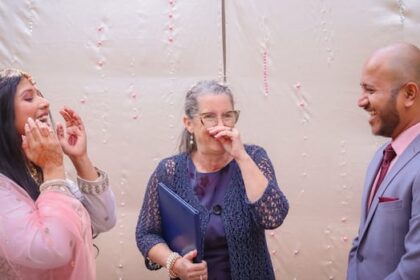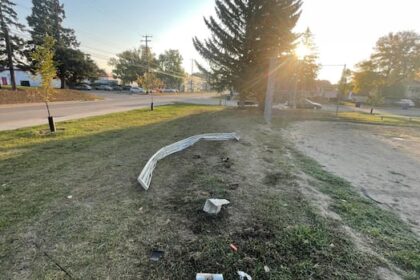TorontoAcross Ontario, Habitat for Humanity offices have had to shift the qualifying incomes they can accept upwards in order to keep pace with property values.Habitat for Humanity in Windsor recently announced households making up to $135K could qualify for help Kate McGillivray · CBC News · Posted: Sep 01, 2025 4:00 AM EDT | Last Updated: 2 hours agoA photo used to promote Leahy’s Lane, a 41-unit Habitat for Humanity condo building in Peterborough. The region recently increased both minimum and maximum income requirements for qualifying for home buying assistance. (Submitted by Habitat for Humanity Peterborough and Kawartha Region)When Jodie Delaney bought a home with the help of Habitat for Humanity, she was at the “borderline of the low end” of the scale to qualify — today she wouldn’t qualify at all.As a single mother on a book-keeping income, Delaney, who lives in London, Ont., applied for the organization’s assistance in 2018 and moved into her home a year later without a down payment. As with all Habitat homes, she also now pays a mortgage geared to her income.But with skyrocketing housing prices in the last half-decade, someone in her position today likely wouldn’t make the cut for Habitat assistance. “The common-sense me says, I get it. But it would have been devastating” not to qualify, she said.That’s because across Ontario, Habitat for Humanity offices have had to shift qualifying incomes upwards both to keep pace with rising property values and to make sure applicants can secure a mortgage, explained Karen Coviello, senior vice-president for Habitat for Humanity Canada. In other words, applicants now have to make more to qualify for the assistance meant to make housing more affordable. “The environment that we’re working in has changed dramatically over the last five years,” Coviello said. “The average home price in communities across Southern Ontario has just continued to rise, rise, rise.”Incomes up to $135K qualify in parts of OntarioIn Toronto, where Habitat is seeking applicants for a new townhouse complex in Brampton, an online eligibility quiz says it’s looking for household incomes between $86,000 and $135,000. That’s a significant jump in maximum income since 2023, when the Toronto location first made headlines for offering help to families making six figures. Windsor is the latest Habitat for Humanity affiliate in Ontario to adjust its requirements, announcing this summer that households with incomes as high as $135,000 a year could qualify for its help. WATCH | Windsor’s Habitat for Humanity changes its application requirements: Windsor-Essex charity homebuilder increases what a family can earn so more can qualifyHabitat for Humanity Windsor-Essex is allowing more people to apply and qualify to access one of its homes. The charity builds and renovates residences for families in need. It’s raising the eligibility from a household income of $100,000 to $135,000. The average cost to currently buy a home in Windsor is $570,000.Earlier this year, Habitat for Humanity Peterborough and Kawartha Region (HPKR) also increased its maximum household income for applicants from $84,000 to $95,000, and firmed up a new minimum income of about $60,000. “And that’s just because of the interest rates within the area and region to get a mortgage… because they are still qualifying for a mortgage,” explained Holly McKinnon, a communications manager with HPKR. More homeowners free up rentals, says Habitat Both McKinnon and Coviello say that Habitat’s goal of offering an affordable path to homeownership remains the same, even as the necessary income to participate creeps up. “We play a very specific role…. we help people buy homes,” said Coviello. “It’s up to the municipal government, the provincial government, and the federal government to make sure that there’s availability across the housing continuum to meet the needs of their citizenry.” McKinnon added that while Habitat is catering to a “niche market” of middle and moderate-income households who have been priced out of ownership, helping those people helps others as well. “When these homeowners purchase a home with Habitat… they’re freeing up space, they’re freeing up rentals. And it’s kind of moving everything along,” she said. A ‘practical’ and ‘necessary’ moveKaren Chapple, a geography professor and director of the University of Toronto’s School of Cities, agrees getting more people into a position to buy creates more vacancies in rental units, which will then ideally go to a “family that’s more in need.” “That’s a process that used to work in this country for housing affordability that isn’t working so well now, with the exception of these types of programs that are helping the middle class,” she told CBC Toronto. Karen Chapple, director of University of Toronto’s School of Cities, says changes at Habitat are reflective of the depth of the housing affordability crisis in the province. (Submitted by Karen Chapple)Chapple says that when it comes to programs for middle and moderate earners, Habitat is one of the only players. Most government housing programs are aimed at lower income groups — though she adds that there’s “never enough” affordable housing for either group. On the whole, she says she commends Habitat for adjusting income requirements in order to maintain its operating model. “It’s a practical move, and a necessary move, unfortunately,” she said. “A lot of organizations don’t bother to look at the data and their criteria become obsolete.” Chapple’s colleague Prentiss Dantzler, who serves as director of the Housing Justice Lab within U of T’s School of Cities, agrees the income shifts are a step the organization “needs to take.” Still, he thinks it’s important to note that the result is that Habitat is catering to a shifting, increasingly wealthy demographic. “That probably will continue until there’s some big dip in the housing market or if they, as an affordable housing developer, get some type of relief from other levels of government,” Dantzler said.As for Jodie Delaney, she says Habitat’s affordable path to home ownership is an opportunity she’d like to make sure others like her have, describing it as a “blessing” that’s allowed her to save enough to send her son to university. “Having affordable housing that is also creating equity for our future is life changing,” she said. ABOUT THE AUTHORKate McGillivray is a writer and newsreader in Toronto. She’s worked for the CBC in Montreal, Sherbrooke, Whitehorse, St. John’s and Saskatoon, and she always wants to hear your feedback and story ideas. Get in touch here: kate.mcgillivray@cbc.ca.
Thursday, 5 Feb 2026
Canada – The Illusion
Search
Have an existing account?
Sign In
© 2022 Foxiz News Network. Ruby Design Company. All Rights Reserved.
You May also Like
- More News:
- history
- Standing Bear Network
- John Gonzalez
- ᐊᔭᐦᑊ ayahp — It happened
- Creation
- Beneath the Water
- Olympic gold medal
- Jim Thorpe
- type O blood
- the bringer of life
- Raven
- Wás’agi
- NoiseCat
- 'Sugarcane'
- The rivers still sing
- ᑲᓂᐸᐏᐟ ᒪᐢᑿ
- ᐅᑳᐤ okâw — We remember
- ᐊᓂᓈᐯᐃᐧᐣ aninâpêwin — Truth
- This is what it means to be human.
- Nokoma











